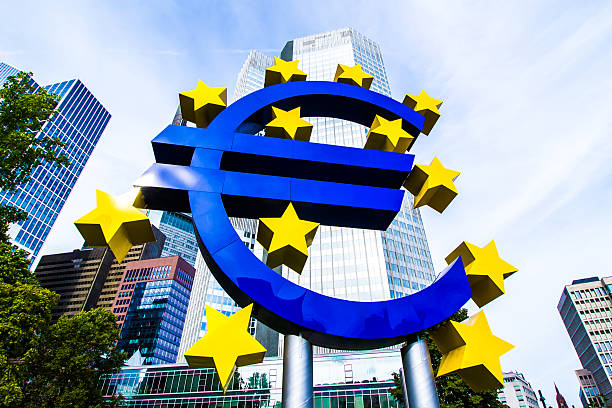5 Best Payment Stocks to Buy in 2025

TradingKey - In a world increasingly driven by digital transactions, the payment industry stands as a cornerstone of modern commerce.
Whether you’re buying a cup of coffee with your smartphone, shopping online, or managing cross-border business, payment processors make it all happen seamlessly.
As we head into 2025, this sector is poised for even greater growth, fueled by the rise of e-commerce, advancements in fintech, and the ongoing shift away from cash.
With that in mind, the following five companies are leaders in their respective niches but also innovators shaping the future of payments.
Here are why these five payments stocks deserve a spot in your portfolio, as well as what you need to know about their latest earnings, strategic growth plans, and key risks to consider.
- Visa
Visa Inc (NYSE: V) is the world’s largest payments network, with unparalleled global reach and brand recognition.
Leveraging powerful network effects, Visa’s ecosystem becomes more valuable as usage via its network grows among merchants and consumers. The company’s focus on cross-border transactions, digital payments, and fintech partnerships positions the company for sustained growth.
Source: Visa’s Q4 FY2024 earnings presentation
In Q4 FY2024, Visa delivered robust results, with net revenue rising 12% year-on-year to US$9.6 billion and earnings per share (EPS) increasing 16% to US$2.71.
Payments volume grew 8%, while cross-border volume (excluding intra-Europe) surged by 13%, driven by strong consumer spending and global travel recovery.
Visa’s future growth is going to be driven by its expansion into contactless payments, digital wallets, blockchain solutions, and embedded finance.
Investments in artificial intelligence (AI) to enhance fraud detection and transaction optimisation also highlight its innovation focus. However, challenges such as regulatory scrutiny and competition from emerging payment platforms remain key risks.
- Mastercard
Mastercard Inc (NYSE: MA) has adopted a technology-driven approach that has made it a leader in the payments industry.
Its investments in cybersecurity, tokenisation, and open banking give it a competitive edge. Additionally, Mastercard’s ability to innovate and create partnerships with fintech firms ensures it stays ahead of the curve.
In Q3 2024, Mastercard reported a 13% year-on-year increase in net revenue to US$7.4 billion, with adjusted EPS up 15% to US$3.89.
Growth was powered by a 10% rise in gross dollar volume, 11% growth in switched transactions, and a 17% increase in cross-border volume. This showcases its global reach and consumer trends that are in its favour.
Mastercard is prioritising real-time payments, BNPL services, and financial inclusion through initiatives like Mastercard Community Pass. It is also exploring opportunities in cryptocurrencies and digital assets.
Despite its strengths, Mastercard faces challenges such as regulatory scrutiny and rising competition from new payments platforms.
- American Express
American Express Co (NYSE: AXP) has traditionally focused on affluent customers and small businesses. This has what sets it apart from players like Visa and Mastercard.
The company’s ability to combine payment processing with card issuance allows for greater control over customer experience and profit margins. The American Express rewards programmes and partnerships with premium brands ensure high customer retention.
In Q3 2024, American Express reported EPS of US$3.49 on revenue of US$16.6 billion, surpassing expectations. Card member spending increased by 6% year-on-year to US$387.3 billion, reflecting strong consumer engagement, particularly among Millennials and Gen Z.
However, growth in commercial services remained subdued, reflecting a more cautious business environment.
Looking ahead, American Express aims to deepen its reach among younger demographics and enhance digital engagement.
Investments in its small business ecosystem (through partnerships and financing solutions) offer long-term growth potential.
Investors should be aware that its premium positioning makes it vulnerable to economic slowdowns, reduced consumer spending, and rising competition in the premium card market.
- PayPal
PayPal Holdings Inc (NASDAQ: PYPL) is a pioneer in digital payments, offering a seamless platform that integrates with e-commerce and financial services.
With over 400 million active accounts, it remains a dominant player in online payments. PayPal’s ecosystem, including Venmo and BNPL services, ensures that its various platforms stay relevant in a competitive market.
Source: PayPal’s Q3 2024 earnings presentation
In Q3 2024, the company posted strong results, with revenue increasing 6% year-on-year to US$7.9 billion and adjusted EPS of US$1.20, surpassing analyst expectations.
Total payment volume (TPV) reached US$422.6 billion, translating into 9% growth fuelled by gains in branded checkout, Venmo, and Braintree.
Transaction margin dollars grew 8%, reflecting improved interest income on customer balances and efficiencies in risk management.
Focused on merchant services, AI-driven personalisation, and international expansion, PayPal is well-positioned for growth despite competition from fintech rivals and sensitivity to e-commerce trends.
- Block
Block Inc (NYSE: SQ), formerly known as Square, has grown into a diversified fintech leader with offerings like Cash App, Afterpay, and business solutions for consumers and merchants.
Its integration of blockchain and crypto technology sets it apart in the payments space.
Source: Block’s Q3 2024 earnings presentation
In Q3 2024, Block reported adjusted EBITDA of US$807 million and net income of US$284 million, a sharp improvement from the prior year’s loss.
Block’s wildly-popular Cash App drove a 21% increase in gross profit, driven by user growth and a 9% rise in inflows per active user.
Expanding into financial services, including small business loans and banking, remains a key focus, while scaling Cash App and integrating Afterpay could unlock new revenue streams.
However, Block’s exposure to crypto volatility and rising operating costs from its aggressive growth strategy pose potential risks for investors.
Invest in the future of payments
The payments industry is at the forefront of digital transformation, offering immense growth potential through innovation and global adoption.
Leaders like Visa, Mastercard, American Express, PayPal, and Block are well-positioned to capitalise on trends like e-commerce, contactless payments, and blockchain.
However, investors should remain mindful of key risks, including regulatory challenges, rising competition from fintech disruptors, and sensitivity to economic downturns.
Diversifying within this sector (by buying multiple winners) can help mitigate risks while allowing you to participate in the evolution of global commerce and payments.








